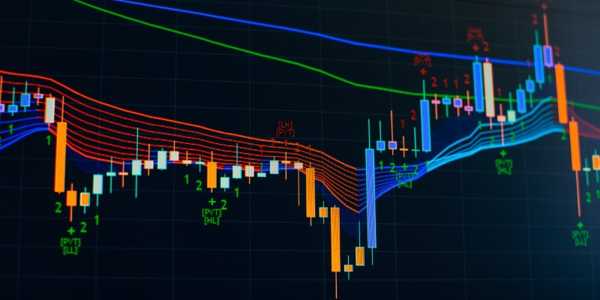How To Invest In International Stocks For Better Returns
Investing in international stocks can be brilliant for diversifying your portfolio and enhancing potential returns. In an increasingly interconnected world, opportunities exist beyond domestic markets that can lead to significant financial gains. By venturing into foreign markets, investors can tap into emerging economies and industries that might not be available locally. However, investing internationally comes with challenges and risks, making it essential to approach this strategy carefully. This article provides an overview of investing in international stocks effectively, focusing on understanding the global landscape, selecting the right stocks, employing methods, and managing risks.
Understanding The Global Market Landscape
Understanding diverse economic, cultural, and political factors is crucial as businesses globalize. This section explores elements influencing global trade, regional challenges and opportunities, and practical strategies for international engagement.

The Importance Of International Diversification
Investing solely in domestic stocks can restrict growth potential significantly when global economies outperform your home market. By diversifying internationally, investors can reduce risk and tap into unique opportunities, particularly in emerging markets like India, Brazil, and African nations, where rapid development can yield significant investment gains not found in mature economies.
Key Economic Indicators To Watch
Keeping up with important economic data that can affect market performance while investing in foreign equities is critical. These include Gross Domestic Product (GDP) growth rates, inflation levels, unemployment rates, and foreign exchange rates. Understanding how these factors interact can help you make informed investment decisions. For example, a country experiencing strong GDP growth might present an attractive investment environment, while high inflation could signal potential economic trouble.
Additionally, political stability plays a crucial role in international investing. Countries with stable governments and sound economic policies typically offer a more secure investment environment. Conversely, political turmoil can lead to market volatility, making assessing the political landscape when considering investments in foreign stocks essential.
Researching And Selecting International Stocks
As investors look beyond domestic markets, understanding international stocks is crucial. This section will discuss effective research methods and critical factors to guide informed investment decisions in a global economy.
Analyzing Company Fundamentals
After understanding the global market landscape, research specific international stocks by examining company fundamentals such as revenue growth, profit margins, and debt levels. Additionally, industry analysis should be conducted, as sector performance varies by region. This will help you select stocks positioned for success in their respective markets based on local demand and conditions.
Utilizing Investment Platforms And Tools
Investing in international stocks is more accessible with online brokerage platforms that allow trading of foreign stocks or American Depositary Receipts (ADRs)—research platforms for market access and fees. Utilize investment tools, financial news sites, and analytical resources to compare stocks and stay informed about global market trends that may affect investments.

Strategies For Investing In International Markets
As global markets interconnect, investors face complexities like currency fluctuations and geopolitical risks. Effective strategies tailored to international markets are crucial for making informed investment decisions.
Long-Term Versus Short-Term Strategies
Choosing an investment strategy is vital in international markets. A long-term approach typically maximizes compounding returns but requires resilience through market volatility. Conversely, short-term trading can be effective for experienced investors who understand market trends but necessitate a solid risk management plan to navigate emerging opportunities successfully.
Exchange-Traded Funds (ETFs) And Mutual Funds
Exchange-traded funds (ETFs) and mutual funds provide a diversified alternative for individuals overwhelmed by choosing individual foreign stocks. These funds pool investor money to purchase various global stocks, reducing risk. ETFs are particularly popular for their lower fees and targeted focus on specific regions or sectors.
Currency Considerations
Currency risk is a risk associated with overseas investing because exchange rate variations might affect the value of your investments. When a foreign currency strengthens against your home currency, your returns can increase; conversely, a weaker currency can erode your gains. To manage this risk, consider diversifying your currency exposure by investing in multiple countries or using hedging strategies through currency ETFs or options.

Navigating Risks And Challenges In International Investing
As global markets evolve, investors seek international opportunities for diversification and higher returns. However, they must navigate risks like geopolitical dynamics and currency fluctuations. Strategies to mitigate these challenges will be discussed.
Understanding Political And Economic Risks
Investing in international markets involves risks tied to political and economic instability, such as government policy changes and geopolitical tensions. Staying informed through credible news sources is essential. Additionally, economic risks like currency fluctuations and inflation can impact profitability, necessitating a solid understanding of the financial landscape for effective investment strategy adjustments.

Market Volatility And Liquidity Risks
International markets can experience higher volatility than domestic markets. Price variations can occur quickly due to various circumstances, including releasing economic data or world events. It's essential to maintain a long-term perspective when investing internationally and not be swayed by short-term market movements.
Liquidity risk is another factor to consider. It may be more challenging to acquire or sell shares without affecting the market price when dealing with some foreign stocks since they are less liquid than those on domestic exchanges. Investing in ETFs or mutual funds can mitigate this risk, as they generally offer greater liquidity due to their diversified nature.
Legal And Regulatory Considerations
Investing in foreign markets means navigating different legal and regulatory frameworks. Each country has its own set of laws governing securities and investments, which can impact your ability to trade. Familiarize yourself with the regulations in the countries you invest in and ensure compliance to avoid potential legal issues.
Additionally, consider the tax implications of international investing. Countries have varying tax laws regarding capital gains and dividends, which can affect your overall returns. Consulting with a financial advisor or tax professional specializing in international investments can help you navigate these complexities.

Conclusion
Investing in international stocks can be a rewarding strategy for enhancing your portfolio and achieving better returns. You may successfully traverse the difficulties of foreign investing by comprehending the global market landscape, carefully investigating possible investments, using a solid strategy, and minimizing risks. You will benefit from investing more wisely if you take the time to educate yourself and stay informed about market circumstances, regardless of whether you decide to invest directly in foreign equities or through funds.







